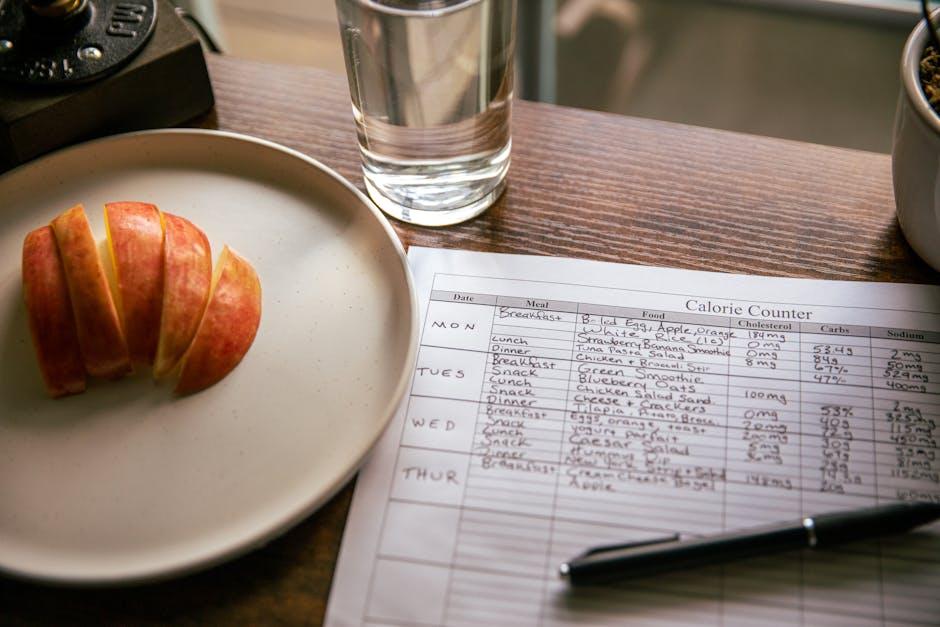Welcoming a growing puppy into your home is a joyful experience filled with boundless energy, wagging tails, and curious explorations. As a responsible pet parent, one of the most loving things you can do for your furry friend is to ensure they receive the right nutrition to support their growth and development. Planning balanced meals for your puppy not only lays the foundation for a healthy life but also strengthens the bond between you and your new companion. In this guide, we will walk you through the essential steps to create a nutritious meal plan tailored to your puppy’s unique needs, ensuring they thrive at every stage of their early life. With warmth and care, let’s embark on this journey to nurture your puppy’s well-being from the inside out.
Understanding Your Puppys Nutritional Needs
When it comes to nourishing your little furball, understanding their dietary requirements is essential for their health and happiness. Puppies require a diet rich in proteins, fats, carbohydrates, vitamins, and minerals to support their rapid growth and development. Here are some key components to consider when planning their meals:
- Proteins: Essential for building muscles and repairing tissues. Look for quality sources like chicken, beef, or fish.
- Fats: Provide energy and help absorb vitamins. Include healthy options like fish oil or chicken fat.
- Carbohydrates: Supply energy and support digestive health. Opt for whole grains such as brown rice or oats.
- Vitamins and Minerals: Crucial for bone development and overall health. Ensure a balanced intake with fruits and vegetables like carrots and spinach.
Remember, every puppy is unique, so it’s important to tailor their diet to their specific breed, size, and activity level. Consult with your veterinarian to create a personalized meal plan that caters to your puppy’s individual needs.
Choosing the Right Ingredients for Optimal Growth
When it comes to nourishing your puppy for healthy development, selecting the best ingredients is crucial. Proteins are the building blocks for muscles and tissues, so opt for high-quality sources like chicken, beef, or fish. These should form the cornerstone of your pup’s diet. Fats are equally essential, offering concentrated energy and supporting brain development. Look for healthy fats like fish oil or flaxseed oil to ensure their coat stays shiny and their cognitive functions sharp.
- Carbohydrates: Choose easily digestible sources like rice or sweet potatoes to provide energy and aid digestion.
- Vitamins and Minerals: Incorporate fruits and vegetables such as carrots, blueberries, and spinach for essential nutrients.
- Calcium and Phosphorus: Crucial for bone health, these minerals can be found in ingredients like yogurt or bone meal.
Remember, every puppy is unique, and their dietary needs can vary. It’s always wise to consult with a veterinarian to tailor a meal plan that ensures your furry friend gets everything they need for robust growth and boundless energy.

Creating a Meal Schedule that Fits Your Puppys Routine
Creating a meal schedule for your puppy involves understanding their unique energy needs and daily routine. Puppies are little bundles of energy, and their meal times should complement their active lifestyles. Begin by observing your puppy’s natural rhythm. When are they most active? When do they rest? These insights can guide you in establishing a feeding routine that supports their growth and playtime. Typically, puppies under six months old require three to four meals a day. As they grow, you can gradually reduce this to two meals per day.
- Morning Meal: Offer a nutritious breakfast to kickstart their day. This meal should be rich in proteins and healthy fats to fuel their morning activities.
- Midday Meal: A lighter meal to sustain their energy levels. This could include a mix of dry kibble and wet food to ensure hydration.
- Evening Meal: A hearty dinner that supports muscle growth and repair. Incorporate a balance of proteins, carbs, and essential vitamins.
Always provide fresh water alongside meals and adjust portion sizes based on your puppy’s growth and activity levels. By aligning their meals with their natural routine, you ensure they get the most out of their nutrition, supporting a happy, healthy development.

Monitoring and Adjusting Your Puppys Diet for Health and Vitality
Keeping a close eye on your puppy’s diet is essential to ensure they grow into a healthy and vibrant adult dog. Puppies have unique nutritional needs that change as they grow, and it’s important to be responsive to these changes. Begin by observing your puppy’s body condition and energy levels. If they seem lethargic or are gaining weight too quickly, it might be time to adjust their diet. A balanced diet should include high-quality proteins, essential fatty acids, and calcium for bone development. It’s also crucial to ensure they are receiving enough vitamins and minerals to support their immune system.
- Regularly weigh your puppy to track their growth and make dietary adjustments as needed.
- Consult with your veterinarian to tailor a diet plan that suits your puppy’s breed, size, and activity level.
- Observe their stools for any signs of digestive issues, which can indicate dietary adjustments are necessary.
- Avoid overfeeding by measuring meals carefully and avoiding too many treats.
Adjusting meal portions as your puppy grows is as important as selecting the right food. Puppies grow rapidly, and their dietary needs can shift quickly. Stay informed and proactive, ensuring that your furry friend receives the nutrition they need to thrive.
















